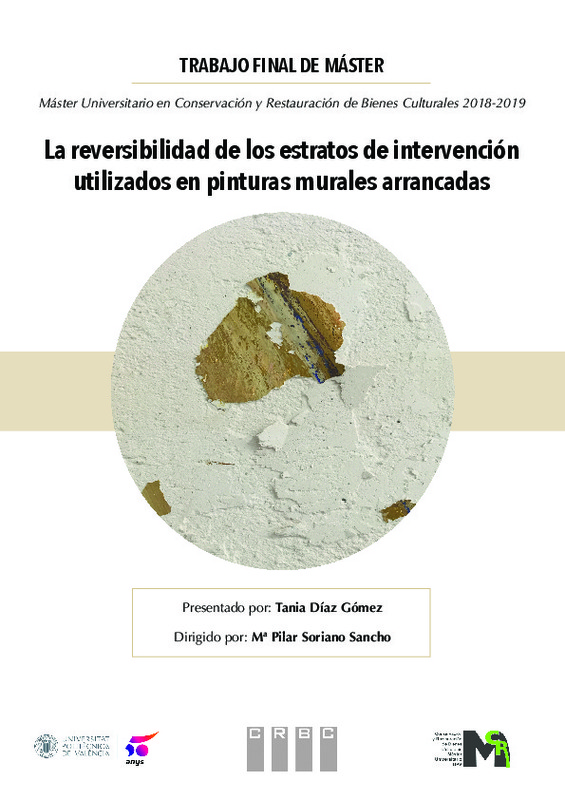|
[ES] El presente trabajo se centra en realizar un estudio de la reversibilidad de los estratos de intervención utilizados a lo largo de la historia en el proceso de traspaso de una pintura mural arrancada a un nuevo soporte. ...[+]
[ES] El presente trabajo se centra en realizar un estudio de la reversibilidad de los estratos de intervención utilizados a lo largo de la historia en el proceso de traspaso de una pintura mural arrancada a un nuevo soporte. Son muchos los materiales empleados y estudiados a lo largo de la historia desde 1965 por lo que el presente trabajo tiene como objetivo determinar el estrato de intervención que más reversible se muestra y menos daña la obra. El estrato de intervención o estrato de sacrificio, como su propio nombre indica tiene como propósito principal actuar de barrera entre el nuevo soporte y la obra para así poder facilitar el proceso de eliminación del soporte sin resultar un proceso dañino.
Los estudios de reversibilidad se realizarán sobre probetas realizadas en el año 2011 para una investigación, las cuáles sirvieron para determinar la adherencia de la tela a los diferentes estratos de intervención que el presente trabajo nos ocupa. Las probetas fueron realizadas con un soporte de Aerolam (fibra de vidrio y nido de abeja) y los distintos estratos de intervención laminares, químicos-adhesivos y de morteros ligeros.
[-]
[EN] The present work focuses on conducting a study of the reversibility of the intervention strata used throughout history in the process of transferring a wall painting torn to a new support. There are many materials ...[+]
[EN] The present work focuses on conducting a study of the reversibility of the intervention strata used throughout history in the process of transferring a wall painting torn to a new support. There are many materials used and studied throughout history since 1965, so the present work aims to determine the intervention layer that is most reversible and less damaging the work. The intervention stratum or stratum of sacrifice, as its own name indicates, has as its main purpose acting as a barrier between the new support and the work in order to facilitate the process of eliminating the support without being a harmful process for the work.
The work focuses on a review of the materials used as intervention layers and an experimental block in which a series of test tubes with the same support and different combinations of intervention layers and adhesives have been made. In this case, we will focus the study on wall paintings torn off using the strappo technique, from which we obtain only the pictorial film after the start-up process. The specimens have been subjected to reversibility treatment, depending on the nature of the intervention stratum. The results obtained have served to determine the degrees of reversibility of the different materials and combinations.
[-]
|







